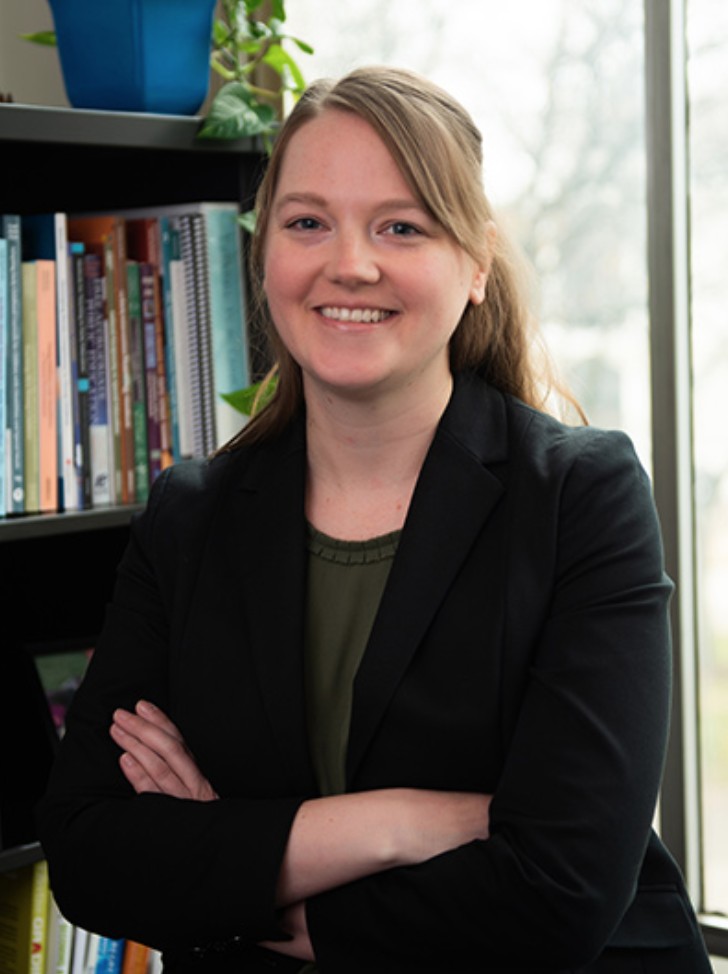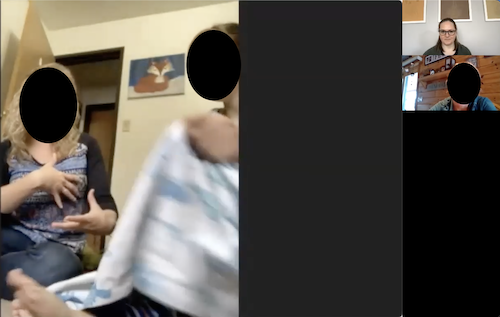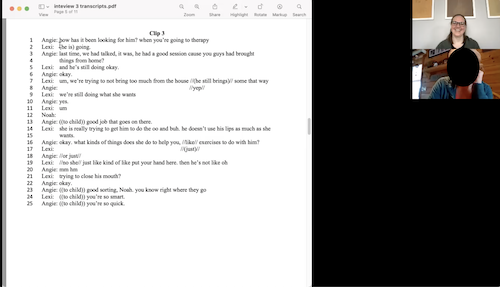Researcher explores strategies to improve shared decision-making and increase effectiveness of home visit programs
 Christine Hancock, assistant professor of early childhood special education in the Wayne State University College of Education, received a $7,000 Clinton County RESA Early On Faculty Grant for Project RED: Reflecting on Equitable Decisions. The project investigates how early intervention home visitors and families of infants and toddlers with developmental delays or disabilities collaborate to make decisions about supporting child learning and development.
Christine Hancock, assistant professor of early childhood special education in the Wayne State University College of Education, received a $7,000 Clinton County RESA Early On Faculty Grant for Project RED: Reflecting on Equitable Decisions. The project investigates how early intervention home visitors and families of infants and toddlers with developmental delays or disabilities collaborate to make decisions about supporting child learning and development.
“I developed the proposal for Project RED as part of the Research Mentors Program for New Faculty at Wayne State,” said Hancock. “I appreciate the support and feedback I received from my mentor, Poonam Arya, professor of reading, language and literature, as I was designing this project, with the primary purpose of identifying and increasing home visitors’ discursive processes that facilitate shared decision-making with families, fostering more meaningful family participation in decisions about their child.”
Key audiences for research findings include other early childhood home visitors who can use information to further reflect on and refine their own practices, and programs providing pre- or in-service training for home visitors who can incorporate identified strategies that meaningfully engage families in decision-making.
The project engages early intervention home visitors in video analysis of their own home visiting practices, fostering reflection on the extent to which they engaged families. Home visitors set goals for improvement, implement their ideas and engage in another round of video analysis.
 The small-scale benefits of this process for home visitors and the families and children they serve are immediate. According to Hancock, who expects to continue collecting data throughout fall 2022, children and families benefit when decision-making actively engages families in reaching their goals. Identifying and increasing practices that meaningfully engage parents in supporting their children’s development also have the potential to increase effectiveness of home-visiting programs, including caregiver and child outcomes.
The small-scale benefits of this process for home visitors and the families and children they serve are immediate. According to Hancock, who expects to continue collecting data throughout fall 2022, children and families benefit when decision-making actively engages families in reaching their goals. Identifying and increasing practices that meaningfully engage parents in supporting their children’s development also have the potential to increase effectiveness of home-visiting programs, including caregiver and child outcomes.
To promote shared decision-making, it is important to consider how decisions are made and in what context. Thus, there is a critical need to better understand how home visitors and families make decisions about how to promote children’s development and what processes support meaningful family participation in decisions.
Despite the importance of family engagement in decision-making, a growing body of research indicates professionals tend to control and dominate decision-making conversations, particularly with families from marginalized backgrounds. When this is the case, decisions about children do not fully reflect family expertise or child abilities and contribute to inequitable service provision.
Home visitors likely need additional supports to foster family participation in decision-making, and video analysis may be a helpful tool to promote reflection and learning. By reflecting on language use in a structured way through video analyses, educators have improved interactional skills and identified practices to refine. Video analysis of family-educator interactions have promoted awareness of communication skills, deepened understanding of partnerships and increased sensitivity to power dynamics.
 One of the participating early intervention home visitors shared her thoughts during an interview about the overall process.
One of the participating early intervention home visitors shared her thoughts during an interview about the overall process.
“I think it’s been super helpful in realizing what terminology works for families and helps me be just more naturally mindful now,” she said. “I used to think about it, but now that I’ve seen it, and can really see how that language goes back and forth, and the difference I can see in words that I use, or how much wait time you give, or the way I give examples or ask more open-ended questions. It’s really been helpful, because when you try to think back about it in your regular, everyday work, you can’t — because you’re so in the moment, listening, and reflecting, and helping with this, and providing a strategy for that. This has been a great way for me to see really specifically: How did that go? How did the conversation work?”
Note: All participants provided informed consent for their images to be shared, and any names depicted are pseudonyms.